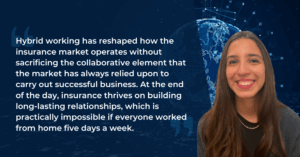Young People in Insurance and the Barriers they Face Entering the Market
In today's challenging job market, still in the midst of the Great Resignation, every industry is facing recruitment challenges and struggling to attract young talent. But for the insurance sector, these challenges are more acute than most, and they're nothing new. But why are the younger generations not being attracted to the insurance sector? There are a number of reasons for this...





















